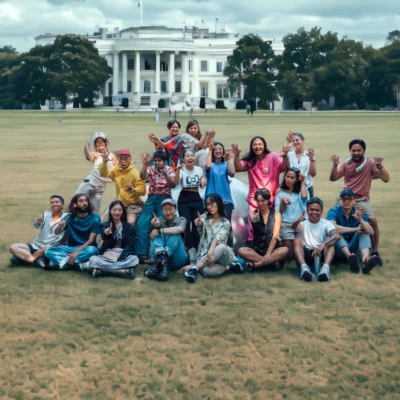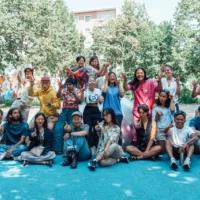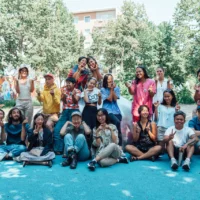Mutating Kinship Lab 2023
Mutating Kinship Lab
At the heart of the lab is the principle of antifragility. Inspired by Nassim Nicholas Taleb's concept, participants explored how the diaspora community functions.
The pandemic was a pivotal turning point for Asian diaspora art initiatives to branch into different modes of connection with not only internal community stakeholders, but also their predominantly white audience ships. Pre-pandemic, they, as marginalized artists, were already able to withstand emergency conditions, but as Mutating Kinship Lab (MKL), a platform for Asian diaspora initiatives, they continued to explore the diverse topics developed in their previous lab. In this year’s lab, they focused on the post-pandemic white audience ship, through an 'anti-fragile' framework and the concept of 'brave spaces'.
At the heart of the lab lies the principle of antifragility. Inspired by Nassim Nicholas Taleb's concept, participants explored how diaspora communities not only survive, but thrive amidst adversity, transforming their experiences into sources of collective strength and resilience.
Furthermore, the lab explored the concept of a brave space – a space that encouraged engagement with difficult and uncomfortable issues with white audiences. MKL participants shared their experiences, perspectives and strategies on creating an environment of trust and respect that would allow for the exploration of complex topics such as racism, tokenism, cultural fetishisation, appropriation, and more.
More detailed documentation of the lab can be found behind the following keywords, which invite you to browse.
- Website of the participants
Participants
Mooni Perry, Hanwen Zhang, Promona Sengupta, Hany Tea, Ariel William Orah, Marque Pham, Jasmin Devita Schruber, Benayir Ibraimova, Ghaliz Haris, Ibrahim Mahfouz, Dico Baskoro, Siyu Mao, Sam Kim, Dico Baskoro, Asarela Orchidia Dewi, Emma Lo, Umi Maisyaroh & Hye in Park


